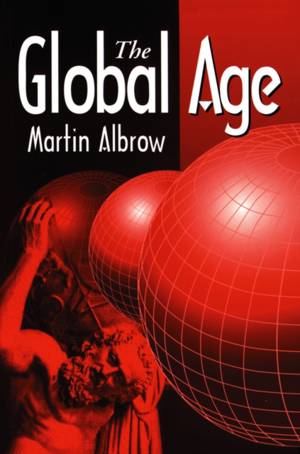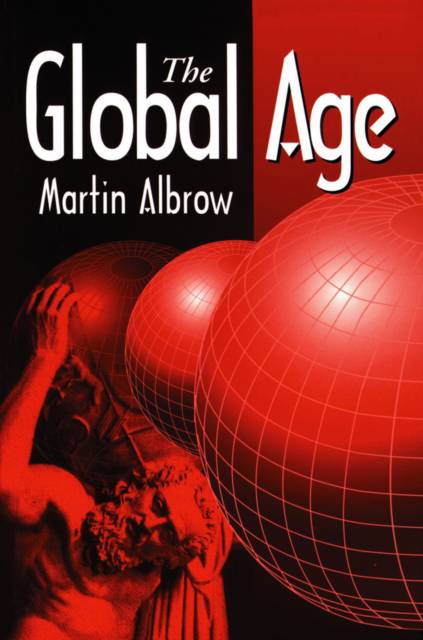
- Afhalen na 1 uur in een winkel met voorraad
- Gratis thuislevering in België vanaf € 30
- Ruim aanbod met 7 miljoen producten
- Afhalen na 1 uur in een winkel met voorraad
- Gratis thuislevering in België vanaf € 30
- Ruim aanbod met 7 miljoen producten
Zoeken
Omschrijving
Many authors who discuss the idea of globalization see it as continuing pre-established paths of development of modern societies. Post-modernist writers, by contrast, have lost sight of the importance of historical narrative altogether. Martin Albrow argues that neither group is able to recognize the new era which stares us in the face. A history of the present needs an explicit epochal theory to understand the transition to the Global Age.
When globality displaces modernity there is a general decentering of state, government, economy, culture, and community. Albrow calls for a recasting of the theory of such institutions and the relations between them. He finds an open potential for society to recover its abiding significance in the face of the declining nation state. At the same time a new kind of citizenship is emerging.
This important book will provoke both radicals and conservatives. Its scholarship ranges widely across the social sciences and humanities. It is bound to promote wide cross-disciplinary debate.
When globality displaces modernity there is a general decentering of state, government, economy, culture, and community. Albrow calls for a recasting of the theory of such institutions and the relations between them. He finds an open potential for society to recover its abiding significance in the face of the declining nation state. At the same time a new kind of citizenship is emerging.
This important book will provoke both radicals and conservatives. Its scholarship ranges widely across the social sciences and humanities. It is bound to promote wide cross-disciplinary debate.
Specificaties
Betrokkenen
- Auteur(s):
- Uitgeverij:
Inhoud
- Aantal bladzijden:
- 256
- Taal:
- Engels
- Reeks:
Eigenschappen
- Productcode (EAN):
- 9780745611891
- Verschijningsdatum:
- 9/12/1996
- Uitvoering:
- Paperback
- Formaat:
- Trade paperback (VS)
- Afmetingen:
- 152 mm x 229 mm
- Gewicht:
- 385 g

Alleen bij Standaard Boekhandel
+ 85 punten op je klantenkaart van Standaard Boekhandel
Beoordelingen
We publiceren alleen reviews die voldoen aan de voorwaarden voor reviews. Bekijk onze voorwaarden voor reviews.











